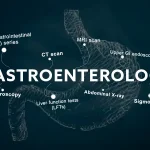Understanding Cytomegalovirus (CMV) Infection and Its Treatment with Vistide (Cidofovir)
Cytomegalovirus (CMV) is a common virus in the herpesvirus family, specifically known as Human Herpesvirus 5 (HHV-5). It’s estimated that between 60% to 100% of adults worldwide are infected with CMV by age 40, with prevalence varying widely across different populations and regions.
Overview of CMV Infection
CMV is primarily transmitted through bodily fluids such as saliva, urine, blood, breast milk, and through sexual contact. Once someone is infected, the virus remains dormant in the body for life and can reactivate, particularly in individuals with weakened immune systems, such as those undergoing organ transplants, chemotherapy, or those living with HIV/AIDS .
Symptoms and Complications
In healthy individuals, CMV usually causes no symptoms or only mild flu-like symptoms, like fever, fatigue, and swollen glands. However, for immunocompromised patients, CMV can lead to severe complications, including:
- Retinitis: Inflammation of the retina, potentially leading to vision loss.
- Gastrointestinal issues: Such as colitis and esophagitis.
- Pneumonia: A serious lung infection.
- Neurological complications: Including encephalitis and myelitis.
Congenital CMV infection, where the virus is transmitted from mother to fetus during pregnancy, is a significant concern. It is the most common infectious cause of birth defects in the United States, affecting approximately 1 in 200 births. Infants with congenital CMV can experience a range of health problems, including hearing loss, developmental delays, and other neurological impairments.
Diagnosis
Diagnosis of CMV infection typically involves laboratory tests that detect the virus in body fluids. For adults, blood tests are common, while saliva or urine tests are preferred for newborns, especially when a congenital infection is suspected.
Treatment Options
- While there is no cure for CMV, antiviral medications can manage severe cases, particularly in immunocompromised patients. One of the primary treatments is Valganciclovir, which has shown effectiveness in improving outcomes for infants diagnosed with congenital CMV.
- Another antiviral drug, Cidofovir (Vistide), is used in specific cases, particularly for treating CMV retinitis in patients with AIDS. Cidofovir is a potent antiviral that inhibits viral DNA synthesis, making it effective against CMV. However, it is associated with significant nephrotoxicity, necessitating careful monitoring of kidney function during treatment . Vistide is administered intravenously and is often reserved for severe cases where other treatments may not be suitable or effective.
- Cytomegalovirus remains a significant public health concern due to its prevalence and potential for severe health complications, especially in vulnerable populations such as infants and immunocompromised individuals. Awareness of CMV transmission, symptoms, and treatment options is crucial for managing this common viral infection effectively. Continued research and public health initiatives are essential to reduce the incidence of congenital CMV and improve outcomes for affected individuals.
In summary, while CMV is often asymptomatic in healthy individuals, it poses serious risks for those with weakened immune systems and can lead to significant complications in newborns. Treatments like Valganciclovir and Cidofovir provide critical options for managing severe cases, underscoring the importance of early detection and intervention.
Can CMV be cured?
No, there is no cure for CMV. However, antiviral medications can help manage symptoms and reduce the severity of the infection, particularly in immunocompromised patients.
How can CMV infection be prevented?
CMV can be prevented through good hygiene practices such as regular hand washing, avoiding sharing eating utensils, and practicing safe sex. Pregnant women should be particularly cautious to avoid exposure.
Who is at the highest risk for severe CMV complications?
Immunocompromised individuals, such as those with HIV/AIDS, organ transplant recipients, and patients undergoing chemotherapy, are at the highest risk for severe CMV complications. Newborns infected congenitally are also at significant risk.
What are the common symptoms of CMV in healthy individuals?
Healthy individuals may experience mild flu-like symptoms such as fever, fatigue, and swollen glands, or they may have no symptoms at all.
How is congenital CMV infection diagnosed?
Congenital CMV infection is typically diagnosed through saliva or urine tests in newborns, especially within the first three weeks of life.
What is the role of Vistide (Cidofovir) in CMV treatment?
Vistide (Cidofovir) is used to treat CMV retinitis in patients with AIDS. It works by inhibiting viral DNA synthesis but requires careful monitoring due to its potential nephrotoxicity.
References:
https://www.mayoclinic.org/diseases-conditions/cmv/symptoms-causes/syc-20355358
https://www.ncbi.nlm.nih.gov/books/NBK459185/
https://www.cdc.gov/cytomegalovirus/about/index.html
https://emedicine.medscape.com/article/215702-overview
https://www.msdmanuals.com/en-in/home/infections/herpesvirus-infections/cytomegalovirus-cmv-infection






